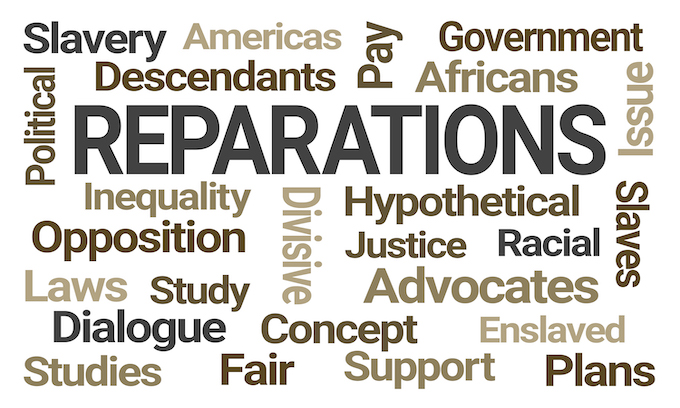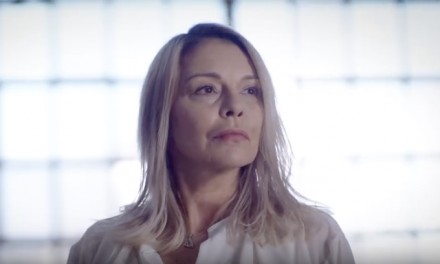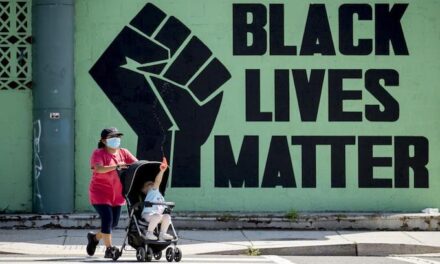Gov. Gavin Newsom signed a law on Wednesday that opens the door to the state paying reparations of some kind to Black Californians, especially those who are descendants of slaves.
The law does not commit to any specific kind of payment. It calls for a nine-member task force that will be asked to make recommendations for how reparations could be provided, such as through compensation or restitution.
The task force can also make recommendations on eliminating state laws and policies that perpetuate discrimination and on issuing a formal apology “for the perpetration of gross human rights violations and crimes against humanity on African slaves and their descendants,” according to the bill.
The task force will be asked to compile a report on the effects of slavery and systemic discrimination — historic and current — on Black Californians and recommend appropriate ways to educate the public of those effects, by no later than June 2022.
“Advancing this cause where it’s not just a question on a questionnaire for a candidate running for office but actually taking shape here, that’s a meaningful moment,” Newsom said before he signed the bill. “This conversation is so long overdue.”
California becomes one of the first states to study reparations. The support for reparations has grown across the nation, with Congress in 2019 holding its first hearing on the subject. In July, the city council of Asheville in North Carolina unanimously voted to establish a Community Reparations Commission that will put funds and resources toward benefiting the city’s Black residents.
Recent deaths of George Floyd, Breonna Taylor and other Black Americans have amplified the calls for racial justice and equity. The reparation bill was among this year’s priorities for the California Legislative Black Caucus, along with capping parole periods and repealing the state’s ban on affirmative action. Voters will decide next month whether to bring back affirmative action when they vote on Proposition 16.
California joined the United States as a “free state” in 1850. But the state Legislature in 1852 passed the California Fugitive Slave Law, which legalized white people keeping the slaves they brought to California before statehood as long as they are taken back to the South.
And up to just a few decades ago, many cities in the state kept Black residents out of owning homes in desirable neighborhoods in a practice called “redlining.”
“California has come to terms with many of issues, but it has yet to come to terms with its role in slavery,” said Assemblywoman Shirley Weber, D-San Diego, who chairs the caucus and introduced the Assembly Bill 3121, said at the bill signing ceremony. “AB 3121 is groundbreaking for the United States, to basically say this state is going to deal with the issue of reparation and we’ll make a difference as the result of that.”
Five members of the task force will be appointed by Newsom. At least one of those members must come from academia with expertise in civil rights, and at least two members must come from major organizations that have historically championed the cause of reparatory justice.
The rest of the nine-member task force will be filled by appointment from the Legislature. The task force will hold its first meeting before June 2021.
There are some historic precedents for reparation, albeit none at the scale of helping millions of Black Californians. The federal government gave $20,000 to more than 80,000 Japanese Americans for its role in detaining them in internment camps. North Carolina set aside $10 million for those forcibly sterilized by the state’s eugenics program between 1929 and 1974.
___
(c)2020 The Sacramento Bee (Sacramento, Calif.)
Visit The Sacramento Bee (Sacramento, Calif.) at www.sacbee.com
Distributed by Tribune Content Agency, LLC.
—-
This content is published through a licensing agreement with Acquire Media using its NewsEdge technology.



















Reparations for long gone slavery is an absurd scam. Blacks are lucky to be here and owe a debt to America. Only in America have Blacks come to relative prosperity with many accomplishments, esp in the Performing Arts & athletics. Most black greats that we applaud could not have arisen in sub-Saharan Africa, which never even developed written languages. They were possible only because of the freedoms & opportunities here. Not many would rather live in another country – best off here. In fact, trillions of dollars in transfer payments already have been made to African-Americans in the form of welfare benefits and racial preferences. And the cost to other races in blood & money due to decade after decade of hugely disproportional violent crime is astronomical. There’s no one alive in American that owes any reparations for long gone slavery, which by the way all races have practiced in the past, including the African tribes who sold the slaves in the first place. This whining for reparations is a pure sucker scam